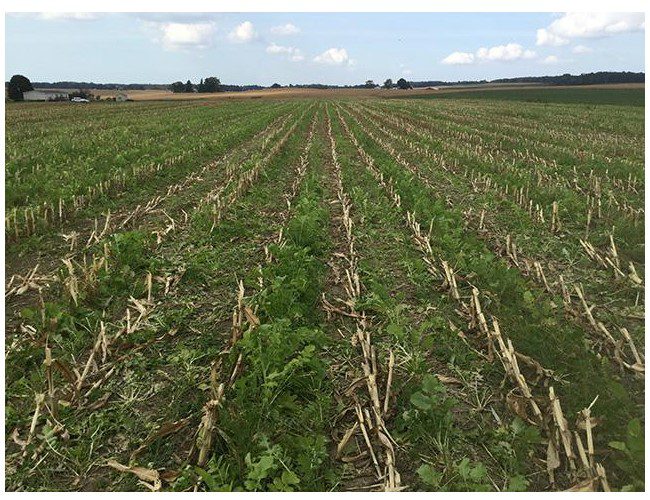Angry Bear’s Mike Smith; I am a little baffled by our governments assessment of agriculture. Just today they released a few details about paying farmers to plant cover crop, as per this article here. House Budget Plan Offers Big Injection of Funds in USDA Conservation Programs House Budget Plan Offers Big Injection of Funds in USDA Conservation Programs (dtnpf.com), Progressive Farmer OMAHA (DTN) — Farmers would get up to an acre from the Farm Service Agency to grow cover crops under billion that would go to USDA conservation programs in the House budget reconciliation package. Agricultural groups started sending around top-line numbers for the billion that will go into conservation programs as part of the .5 trillion
Topics:
run75441 considers the following as important: agriculture, climate change, Farming, Hot Topics, Michael Smith, US EConomics
This could be interesting, too:
NewDealdemocrat writes JOLTS revisions from Yesterday’s Report
Joel Eissenberg writes No Invading Allies Act
Bill Haskell writes The North American Automobile Industry Waits for Trump and the Gov. to Act
Bill Haskell writes Families Struggle Paying for Child Care While Working
Angry Bear’s Mike Smith; I am a little baffled by our governments assessment of agriculture. Just today they released a few details about paying farmers to plant cover crop, as per this article here. House Budget Plan Offers Big Injection of Funds in USDA Conservation Programs
House Budget Plan Offers Big Injection of Funds in USDA Conservation Programs (dtnpf.com), Progressive Farmer
OMAHA (DTN) — Farmers would get up to $25 an acre from the Farm Service Agency to grow cover crops under $28 billion that would go to USDA conservation programs in the House budget reconciliation package.
Agricultural groups started sending around top-line numbers for the $28 billion that will go into conservation programs as part of the $3.5 trillion Build Back Better plan. Groups that already support large investments in USDA conservation programs are praising the proposal.
“It is potentially transformative, and the emphasis on investments in conservation programs centered on mitigating climate change is a game-changer,” said Eric Deeble, policy director for the National Sustainable Agriculture Coalition.
Sen. Debbie Stabenow, D-Mich., chairwoman of the Senate Agriculture Committee, was among those applauding the amount of money for conservation. President Joe Biden’s initial plan had called for $1 billion in agricultural conservation spending. Some conservation groups sought as much as $50 billion in new spending. Stabenow said:
“We are leading the way on helping farmers tackle the climate crisis with a historic investment of $28 billion in the Build Back Better budget for climate-smart agriculture — the largest investment in conservation since the Dust Bowl. Our conservation programs are proven and popular with farmers, ranchers and foresters. This will make a huge impact on reducing greenhouse gas emissions and is the equivalent of taking over 142 million cars off the road.”
Under the details, the bill would spend $5 billion for a cover crop program that would operate through the Farm Service Agency. Another $9 billion will boost spending for the Environmental Quality Incentives Program (EQIP) and $4 billion for the Conservation Stewardship Program. Another $7.5 billion will go to the Regional Conservation Partnership Program (RCPP); $1.5 billion for the Agricultural Conservation Easement Program (ACEP); $600 million for USDA to quantify greenhouse-gas reductions; and $50 million for USDA’s climate hubs.
A caveat for the injection of spending in the various programs — if the funds and budget are approved — is that the funds would have to be used for conservation practices that mitigate carbon emissions.
As pointed out by Mike Smith with this program, one problem is a 50 pound sack of coastal ryegrass seed that I have recently seeded in a pasture costs $37 per 50 pounds. Now that grass seed is in germination for forage in the late fall, early winter. It is cheaper than buying hay off the rancher next door. A cover crop implies I plant it and I guess let it die in the first freeze? Who knows what constitutes actually croppage with the crafters of this bill. We will probably learn more after it is pared down and passed.
Anyhoo, back to the math.
Rye seed per pound covers approximately 325 square feet, but you can get away with closer to 400 if you stretch it, so one 50 pound sack will cover just shy of 20,000 square feet. An acre is 43,560 square feet. So now I need two bags of seed per acre at a cost of $74 per acre.
And they want to pay me $25?

